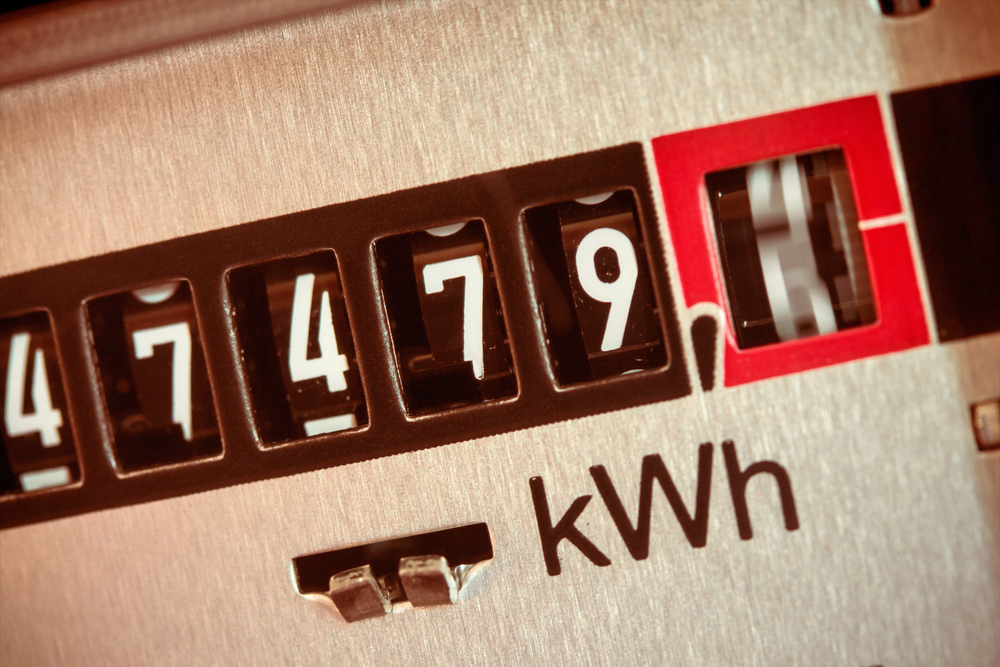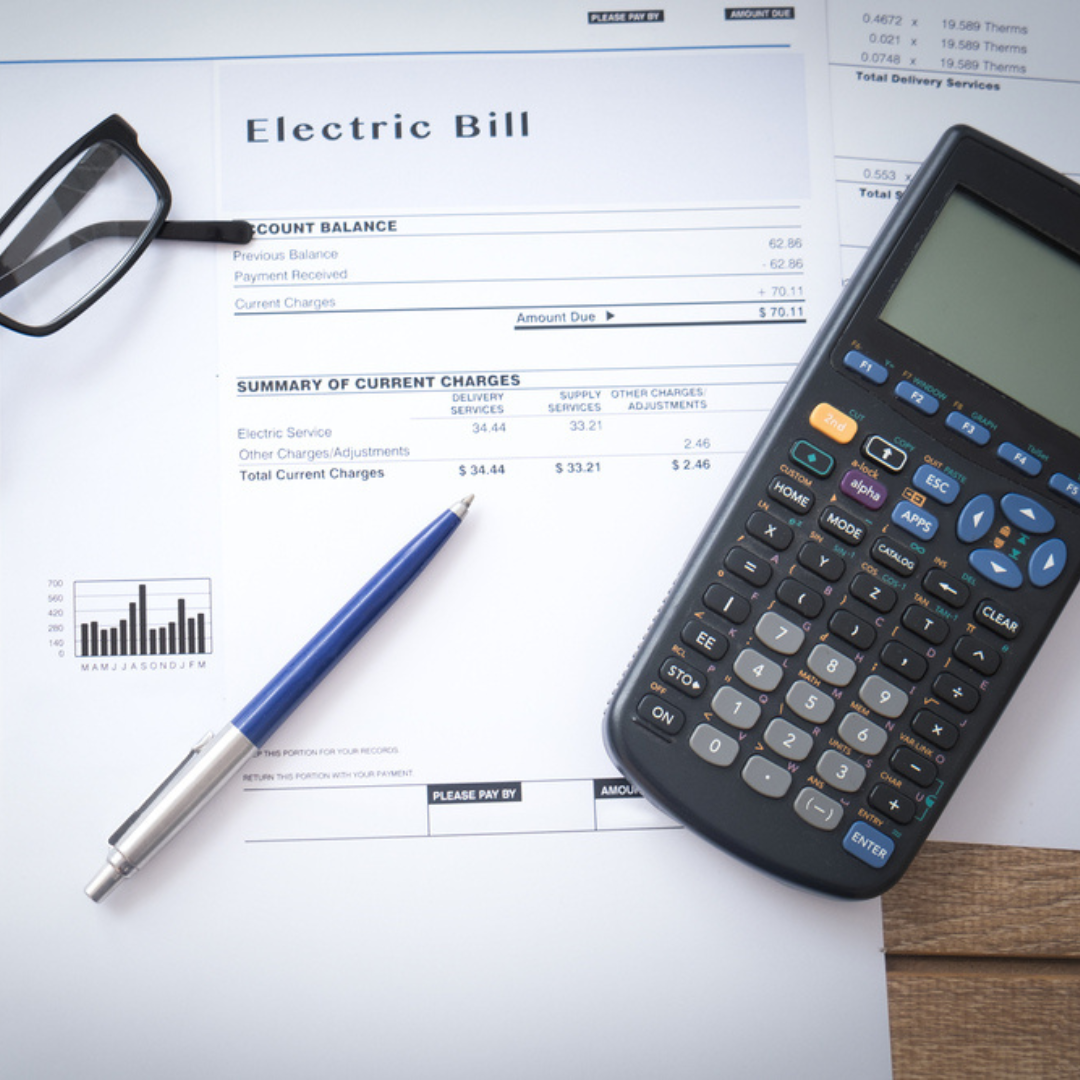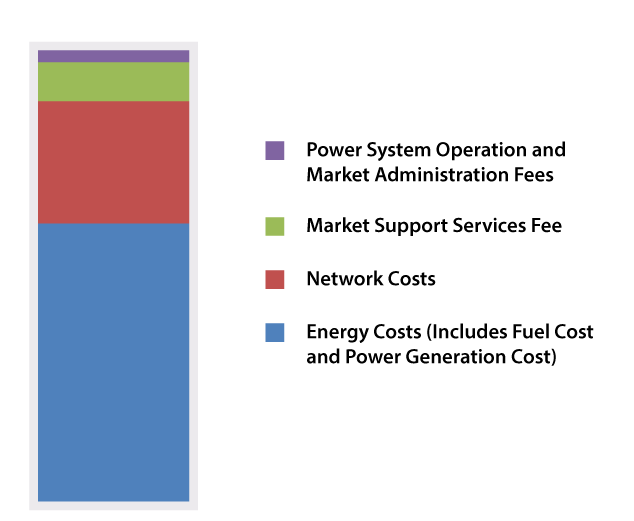
Before the complete liberalisation of the retail electricity market in Singapore, otherwise known as the launch of the Open Electricity Market, households were regulated to be supplied energy from Singapore Power (SP) Group at a quarterly-reviewed electricity tariff. To reflect the fair cost of electricity as far as possible, the tariff is regulated by the Energy Market Authority (EMA), the electricity industry regulator that ensures Singapore’s supply of electricity at sustainable prices.
The opening of the electricity market, however, has shifted the responsibility of electricity supply among new retail actors in Singapore. The increased competition, in turn, has enabled consumers to enjoy lower electricity prices. To learn how this is now possible, it will be useful to understand more about the SP tariff, the meaning behind its cost structure and how the new retail market lets you bring in the savings on your bill.

SP Group is required by the Singapore government to transmit and deliver electricity to consumers in Singapore through the national power grid. The tariff is thus regulated and established accordingly to ensure that SP Group has enough funds to sustain electricity supply, network operation and maintenance in the country.
The SP tariff can be studied as a combination of fuel and non-fuel costs, a useful analysis that would give meaning to the general cost of electricity in Singapore as reflected on your monthly bill.
If you’re a new homeowner looking to maximise savings on your monthly electricity bill, our New Home New Vibes* promotion might be right for you! Enjoy special energy rates, bill rebates, and exclusive partners’ coupons from brands like Steigen, HipVan, and Philips when you sign up today.
* Applicable to New Homeowners who have opened SP accounts 6 months prior. Terms and conditions apply.
In Singapore, approximately 95% of electricity is generated through natural gas which is imported, through commercial contracts, at a fee tied to global fuel prices. This is a practice upheld within Asia. Due to the volatility of the oil market, this component in the electricity tariff fluctuates according to prevailing market conditions. As such, for each quarter, the fuel costs are determined by tabulating the average of daily natural gas prices in the first two and a half months in the previous quarter. This helps to smoothen out any large swings in oil costs that may significantly impact the price of electricity in Singapore. SP Group purchases energy from power generation companies, and this fuel-cost component is adjusted quarterly in the tariff to reflect changes in the cost of fuel and power generation.

The non-fuel component of the SP electricity tariff reflects the costs required to generate and deliver electricity to offices and homes in Singapore, and consists of:

The above cost breakdown explains why SP Group is unable to lower the cost of electricity in Singapore: it does not set the tariff, and it needs to recover a reasonable amount of funds to ensure that power is available and delivered to all consumers in Singapore. The electricity tariff, regulated by EMA, is to “recover” the long-term cost of producing and delivering electricity across the nation.
In a liberalised energy market, SP Group can spread the responsibility of energy supply to electricity retailers in Singapore while still controlling and maintaining the power grid as required by the government. These retailers are either the commercial arm of power generation companies selling their own power directly to consumers such as Senoko Energy, or independent retailers that purchase electricity in bulk from power generation companies at a wholesale electricity price. The wholesale electricity price in Singapore, which is pegged to global fuel prices, is dependent on local demand and supply and changes every 30 minutes.
While the Open Electricity Market has provided lowered electricity costs to consumers, it has also been a significant step to foster innovation and market competition in the power industry.
The stiff competition in the market has pushed retailers to introduce innovative price plans that target different consumer groups in Singapore. In line with their business strategies, they can tie these plans with other products to offer consumer rewards made possible with cross-industry collaboration, such as those with the media and television industry.

The Open Electricity Market now puts consumers in an advantageous position to have better choices surrounding their energy plan. Consumers can enjoy greater savings over the SP electricity tariff, as well as more supplementary perks while receiving the same quality and reliability of electricity.
The retail competition has kept cost low, allowing consumers to go for the cheapest electricity plan in Singapore that matches their consumption patterns.
At Senoko Energy, we offer a range of Fixed Rate and Discount-Off Tariff plans that are suitable for consumers with different consumption patterns. Over 12 or 24 months, consumers can enjoy a regular supply of electricity and reduced costs on their monthly electricity bills, alongside entertainment rewards, card rebates and various promotions from time to time.

Connect with our friendly customer solutions team to find out more about our price plans.